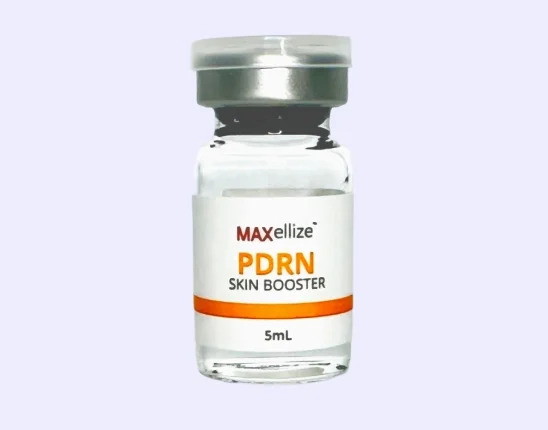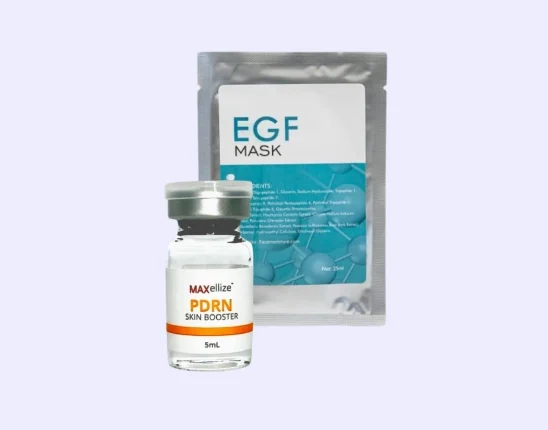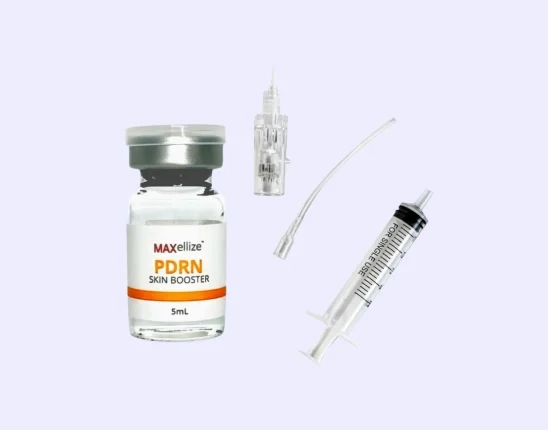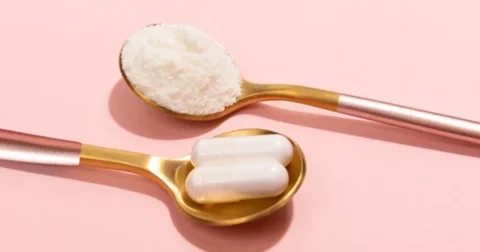Collagen is a protein found in the skin, joints, cartilage, and other connective tissues in the body, making it the most abundant protein in the body. It’s what gives the skin its tight and elastic appearance, and the joints its glue for a more flexible movement. As one ages, the production of human collagen decreases—that’s why collagen peptides in the form of oral supplements or collagen powder are some of the most popular solutions for keeping the body rejuvenated.
So what are the benefits of collagen peptides? These small, broken-down collagen proteins are beneficial for keeping the skin healthy, tight, and elastic. It’s also good for the bones and joints in preventing bone loss and joint pain. It may also boost muscle mass and promote a healthier heart and gut.
Benefits of Collagen Peptides
Collagen peptides are harvested from animal collagen broken down into smaller pieces—that’s why it’s sometimes called collagen hydrolysate. When taken orally or mixed with water, collagen peptides are beneficial to your skin, bones, and joints. It improves the health of your skin, nails, and hair and relieves joint pain. It’s also healthy for your heart and gut and may help boost muscle mass, aiding with weight loss.
1) Improves Skin Health
As the body loses collagen, the skin becomes more saggy, wrinkled, and dull. This is where collagen peptide supplements become useful, especially in slowing down the skin’s aging process by making it tighter and more glowing. They also help reduce the appearance of wrinkles as it improves skin elasticity.
The collagen also serves as a glue – the skin’s scaffolding to the body, that’s why taking collagen supplements is said to provide more support for the skin to keep it more “glued” on the body.
A study from the Journal of Drugs in Dermatology has suggested that collagen supplements promote healthy skin. 800 patients took 10 grams of collagen per day, which resulted in their skin developing better elasticity and collagen fiber density. They also reported better hydration, giving them improved facial skin moisture.
Aside from being a supplementation on skin moisture, collagen peptide supplements also stimulate melanin production, which serves as protection from sun damage.
2) Relieves Joint Pain
Your joints may start aching and become brittle as you grow older because of decreasing collagen production. As they lose natural collagen, the elasticity of your joints also decline. This is why exercising and engaging in other activities that require movements are more difficult for those with joint issues, such as osteoarthritis. To counter this, taking collagen peptide supplements may help patients who experience joint pain to start getting back on their feet.
A study posted on the National Library of Medicine suggests that taking oral collagen supplements helped relieve pain caused by the said joint disease. 500 patients took 10 grams per day of collagen peptides in about 24 weeks, which resulted in significant improvements in joint pain and stiffness.
Another research from the journal Applied Physiology, Nutrition, and Metabolism discovered that taking 5 grams of collagen peptides every day for 12 weeks has helped relieve knee pain among athletes. Collagen peptide supplements are also found to have anti-inflammatory effects that may aid in cartilage repair. Experts speculate that taking collagen supplementation may help stimulate the tissues to produce collagen for the cartilage, resulting in better joint health.
Those who exercise regularly or engage in strenuous activities may benefit from collagen peptides’ anti-inflammation and tendon and ligament protection effects. The elderly and patients with degenerative joint diseases may also benefit from this.
3) Prevents Bone Loss
Preventing bone loss is also one of the health benefits of collagen supplements. Collagen provides strength and structure to the bone, which counters the deterioration of bone mass as collagen production decreases when you age. To prevent osteoporosis and other related conditions, it’s good to have reliable collagen sources like collagen pills or powder.
Meanwhile, interesting research claims that taking collagen peptides as a dietary supplement may help prevent bone loss more. Experts have grouped female patients into those who added 5 grams of collagen to their calcium supplement and those who only take calcium supplements. After 12 months, results show that those who took collagen supplementation had lower levels of blood with proteins that break down the bone, compared to those who took oral collagen peptide supplementation.
Another study published at the MPDI discovered that oral collagen supplementation helps increase bone density. 66 female patients underwent 12 months of 5 grams collagen intake, which resulted in a 7% increase of bone mineral density compared to patients who didn’t take collagen products.
These studies provide promising effects of oral collagen supplementation on bone health, such as collagen powder of collagen capsules. However, more studies and human trials are needed to support dietary supplements with bioactive collagen peptides.
4) Boosts Muscle Mass
Collagen peptides are different from the collagen we have in our bodies. Those found in supplements are low-molecular-weight collagen peptides or hydrolyzed collagen. However, both the protein from the natural collagen production and collagen peptides contain amino acids, which hold beneficial effects on muscle mass.
Collagen is the most abundant protein, making it an important compound in the skeletal muscles. According to studies, it helps patients who suffer from sarcopenia, which involves loss of skeletal muscles with age.
In the trial, 27 men with sarcopenia took 15 grams of daily collagen supplement for 12 weeks, combined with their resistance training program. Those who took supplements with bioactive collagen peptides significantly gained more muscle mass and became stronger. Daily collagen supplements were said to aid muscle protein synthesis and muscle growth.
While oral collagen supplementation may help build muscle mass, whey protein proves to still be more effective. Low-molecular-weight collagen peptide supplements have lower amino acids than whey protein. As of current, studies need to be done more extensively to further support the claims of collagen peptide supplements boosting muscle mass.
5) Maintains Heart Health
One of the effects of collagen supplements was said to promote a healthier heart, reducing the risks of developing heart problems. Aside from providing support to the skin and bones, collagen also offers structure to the arteries. This blood vessel carries oxygenated blood from the heart to the entire body. Since it delivers pumped blood, it needs enough elasticity and flexibility. Atherosclerosis is a disease where the arteries become narrow, leading to stroke and heart attack.
A study from the Journal of Atherosclerosis and Thrombosis reports an improvement in the heart condition of their patients after taking collagen tripeptide supplements twice a day. 32 patients took the said dose of collagen oral supplementation.
Experts have discovered a significant reduction in the stiffness of their arteries and increased levels of good cholesterol or HDL by 6%. Because of this, researchers speculate that one of the potential benefits of taking bioactive collagen hydrolysates is providing support to blood vessel walls and reducing the risks of heart conditions.
6) Promotes Healthier Gut
Collagen peptides have anti-inflammatory properties, which may be beneficial to the gut. Researchers have a theory that collagen peptides are good for inflammations in the digestive tract, such as irritable bowel disease (IBD).
According to research, patients with IBD have an imbalanced collagen breakdown and formation of fibers due to inflammation. Collagen is also an important protein in the connective tissue, including the colon and gastrointestinal tract. That’s why they have increased their patients’ intake of type 4 collagen.
Types of Collagen
Collagen peptides are collagens that have undergone the process of hydrolysis where collagen from animals is heated and broken down. There are many types of collagen in the body, but 4 are the most common. These types of collagen are found in connective tissues, joints, skin and blood vessels, and the organs such as eyes, kidneys, and more.
1) Type I
This type of collagen might be the most common one. Type I collagen or the fibrillar type is present in all connective tissues, such as the ligaments, fat, lymphatic tissues, bones, and such. Collagen type I is usually used to keep the skin, nails, and hair healthy.
2) Type II
Type II collagen is the type you will mostly find in the bones, cartilage, and other connective tissues. It’s also used for anti-inflammatory purposes as it produces chemicals that help ease swelling and pain, although these uses are not yet proven. This collagen type is usually harvested from cows and chickens.
Type II collagen is usually taken by patients with muscle and joint problems, though these collagen benefits need further study.
3) Type III
Type III collagen is said to be present also in the skin and blood vessels. It’s also the reticular fibers’ main component. Like type I collagen, you may also find it in other tissues.
4) Type IV
Type IV collagen is a component present in the inner ear, eye lens, and kidneys. It’s the basement membrane’s major element. Type IV collagen is the extracellular matrix of tissues with multiple cells in other types, such as the smooth muscle cells, skeletal muscle cells, and other types.
When to Expect Results
The effects of your supplements depend on the amounts of collagen peptides you take. Whether you’re taking collagen protein powder supplements or capsules, it should indicate the proper doses. In most studies above, the results show on the skin within 6 to 12 weeks of intake. If your collagen supplements are for the joints, noticeable results will appear within 12 weeks to 6 months.
You may feel the results of collagen supplements for the bones in about a year of regular intake as bone cells may live as long as 50 years. Results for the hair and nails will show up sooner—within 2 to 4 weeks of regular intake.
Risks and Side Effects of Collagen Peptides
Taking collagen peptide supplements is not without risks, even if it has many possible benefits. Those who have taken these amino acids may experience feeling bloated, constipation, diarrhea, and possible allergic reactions. Collagen peptide supplements may also interact with other drugs.
1) Bloated Feeling
Some patients who have taken collagen peptide supplements experience heaviness or mild bloating in the stomach. The stomach acid digests the collagen supplements, so there might be queasiness or a bloated feeling—this will resolve shortly.
2) Allergic Reactions
Check the label of the collagen supplement first because it may contain food that you’re allergic to. It’s usually harvested from eggs, chicken, fish, or shellfish. If you’re allergic to those types of food, take antihistamine medicine and consult your doctor.
3) Constipated Feeling
Collagen supplements may cause a feeling of constipation. If you don’t have enough fluid and fiber, too much protein in your body might make it difficult for you to pass stool.
4) Diarrhea
Your body may be struggling with processing too many collagen peptide supplements, resulting in diarrhea. Those who experience this side effect should better abstain from the supplement or consult their doctor.
5) Drug Interactions
Consult your doctor to avoid drug interactions. Some of the drugs you’re taking might interact with your collagen supplements, rendering both the drug and the supplement ineffective.
Healthy Alternative for Collagen Peptides
Collagen benefits and risks have yet to be researched further. Those apprehensive about trying out bioactive collagen hydrolysates may also explore other healthy alternatives. These alternatives may also help patients receive their daily collagen fix.
Collagen production relies on combining the amino acids proline and glycine with vitamin C, copper, and zinc. So for the body to receive more collagen, it’s best to eat food rich in glycine and proline, such as chicken, beef, dairy, eggs, beans, and fish.
Preparing animal bone broth will also be helpful. For vitamin C, copper, and zinc, eat tomatoes, citrus fruits, shellfish, whole grains, and leafy greens.
Choose FACE Med Store for Medical Supplies
Taking collagen peptide supplements may surely help those who experience health and beauty concerns. While some users report positive results, the studies backing up those supplements still need to develop, especially when there are risks involved. Those who still want to try our collagen peptides as their dietary supplements should first consult their doctor for the best brands and doses.
FACE Med Store is one of the most reliable suppliers of medical supplies for wellness and cosmetic practices. We offer high-quality products at affordable rates. If you need to improve their practice and cut costs, visit the FACE Med Store website to explore your options or get in touch with us today.















